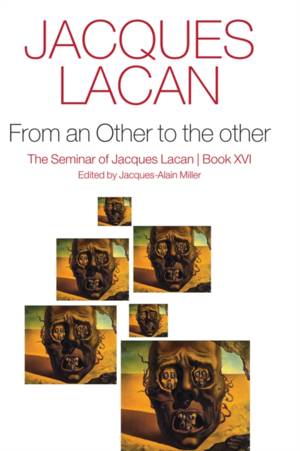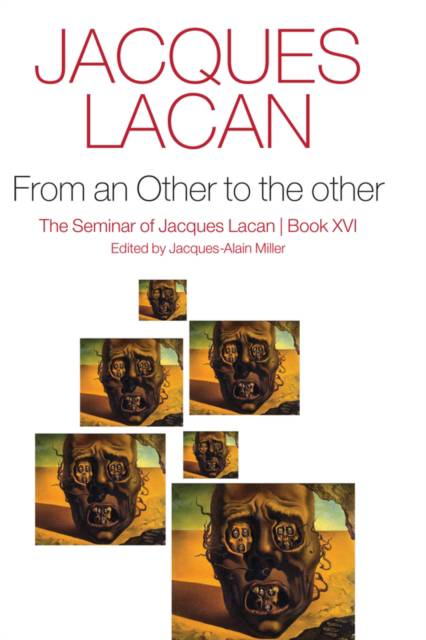
- Retrait gratuit dans votre magasin Club
- 7.000.000 titres dans notre catalogue
- Payer en toute sécurité
- Toujours un magasin près de chez vous
- Retrait gratuit dans votre magasin Club
- 7.000.0000 titres dans notre catalogue
- Payer en toute sécurité
- Toujours un magasin près de chez vous
Description
Sollers once wrote that, to him, Claudel was first and foremost the man who wrote, "Paradise is around us at this very moment, all its forests attentive like a great orchestra that invisibly adores and implores. The whole invention of the Universe with its notes falling vertiginously one by one into the abyss where the wonders of our dimensions are written."
Well, Lacan is, to me, the one who says in this Seminar, "We are all familiar with hell, it is everyday life."
Is that the same thing? No, I don't think so. Here there is no adoration, no invisible orchestra, no vertigo or wonders. Let us begin by the end: Lacan "evacuated" from the rue d'Ulm along with his audience, not without resistance or an uproar. The episode was in all the papers. What had he done to deserve such a fate? He had spoken not only to psychoanalysts, but also to young people who were still fired up by the events of May 1968, who nevertheless accepted him as a master of discourse at the same time as they dreamt of subverting the university system. What did he tell them? That "Revolution" means returning to the same place. That knowledge now imposes its law on power and has become uncontrollable. That thought is censorship itself. He spoke to them about Marx, but also about Pascal's wager--which became in his hands a new version of the master/slave dialectic--not to mention the foundations of set theory. He moved on to a discussion of perversion, and models of hysteria and obsession. All of that is connected, scintillates, and captivates.
Between the lines, the dialogue between Lacan and himself continues regarding the subject of jouissance and the relationship between jouissance and speech and language.
Well, Lacan is, to me, the one who says in this Seminar, "We are all familiar with hell, it is everyday life."
Is that the same thing? No, I don't think so. Here there is no adoration, no invisible orchestra, no vertigo or wonders. Let us begin by the end: Lacan "evacuated" from the rue d'Ulm along with his audience, not without resistance or an uproar. The episode was in all the papers. What had he done to deserve such a fate? He had spoken not only to psychoanalysts, but also to young people who were still fired up by the events of May 1968, who nevertheless accepted him as a master of discourse at the same time as they dreamt of subverting the university system. What did he tell them? That "Revolution" means returning to the same place. That knowledge now imposes its law on power and has become uncontrollable. That thought is censorship itself. He spoke to them about Marx, but also about Pascal's wager--which became in his hands a new version of the master/slave dialectic--not to mention the foundations of set theory. He moved on to a discussion of perversion, and models of hysteria and obsession. All of that is connected, scintillates, and captivates.
Between the lines, the dialogue between Lacan and himself continues regarding the subject of jouissance and the relationship between jouissance and speech and language.
Spécifications
Parties prenantes
- Auteur(s) :
- Traducteur(s):
- Editeur:
Contenu
- Nombre de pages :
- 400
- Langue:
- Anglais
Caractéristiques
- EAN:
- 9781509510054
- Date de parution :
- 26-12-23
- Format:
- Livre relié
- Format numérique:
- Genaaid
- Dimensions :
- 161 mm x 233 mm
- Poids :
- 703 g

Les avis
Nous publions uniquement les avis qui respectent les conditions requises. Consultez nos conditions pour les avis.






